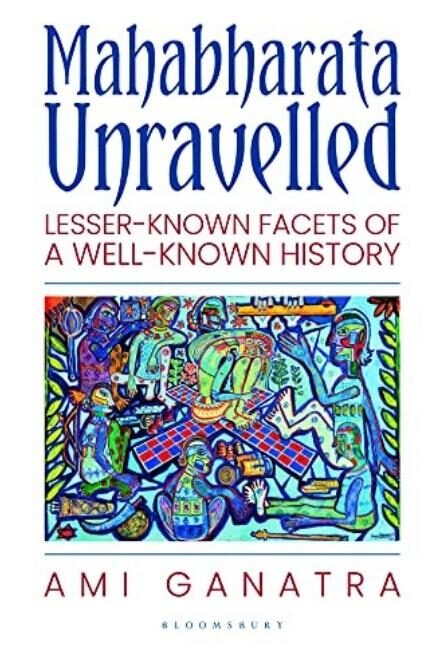
Ami Ganatra
Millennia have passed since the dharma yudhha of the cousins shook the land of Bharata. But this history of our ancestors continues to fascinate us. Even today, we have passionate discussions about the people and their actions in the epic, fervidly defending our favourites and denouncing others. The number of works on the Mahabharata-adaptations, retellings and fiction-that still get written is a testimony to its enduring relevance.
While the general storyline is largely known, a lot of questions and myths prevail, such as-What was the geographical extent of the war? Did Drona actually refuse to take on Karna as his disciple? What were Draupadi's responsibilities as the queen of Indraprastha? Did she ever mock Duryodhana? Were the women in the time of the Mahabharata meek and submissive? What were the names of the war formations during the time? What role did the sons of the Pandavas play? Does the south of India feature at all in the Mahabharata? What happened after the war? These and many other intriguing questions continue to mystify the contemporary reader.
Author Ami Ganatra debunks myths, quashes popular notions and offers insights into such aspects not commonly known or erroneously known, based solely on facts as narrated in Vyasa's Mahabharata from generally accepted authentic sources. For a history of such prominence and influence as the Mahabharata, it is important to get the story right. So pick this book up, sit back and unveil the lesser-known facts and truths about the great epic.
Ami Ganatra is an alumna of Indian Institute of Management Ahmedabad (IIMA). A management professional, she is also a devout yoga practitioner, a certified yoga instructor, and a student of Sanskrit and Indian knowledge systems. Her books Mahabharata Unravelled and the new one, Ramayana Unravelled, are not retellings or imaginations, but an attempt to go back to the original itihasa and present the story, learnings and nuances for what they are, and make the epics accessible to all.